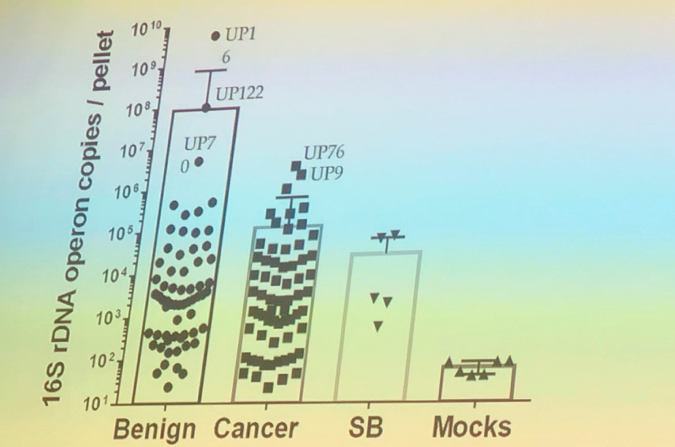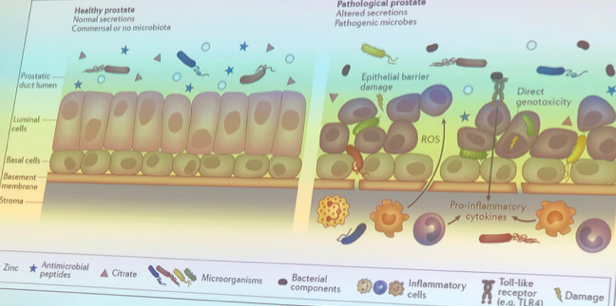Dr. Sfanos presented data on potential association between urinary microbiota and prostate disease. Research show that increased diversity of the urinary microbiota is associated with urologic diseases including sexually transmitted infections (STI), urinary tract infections (UTI), and urge urinary incontinence. Dr. Sfanos and colleagues studied a link between urinary microbiome and prostate cancer occurrence. Urine samples were collected from 129 men prior to the prostate biopsy and/or antibiotic prophylaxis. Sixty-three men had benign pathology results, 63 had cancer, and 5 had cancer on SB. Data analysis showed no significant difference in alpha and beta diversity between cancer and benign samples. Samples differ by abundance per condition (Figure 1).
Figure 1

Dr. Sfanos concluded her presentation by stating that there is limited amount of bacteria in prostate of a healthy individual, but aging, dietary patterns, and previous infections disrupt epithelial barrier and bacteria are introduced into the prostate, thus causing inflammation and other conditions (Figure 2).
Figure 2

Presented by: Karen Sfanos, PHD, John Hopkins Medicine
Written by: Hanna Stambakio, BS, Clinical Research Coordinator, Division of Urology, University of Pennsylvania @AStambakio at the American Urological Association's 2019 Annual Meeting (AUA 2019), May 3 – 6, 2019 in Chicago, Illinois


